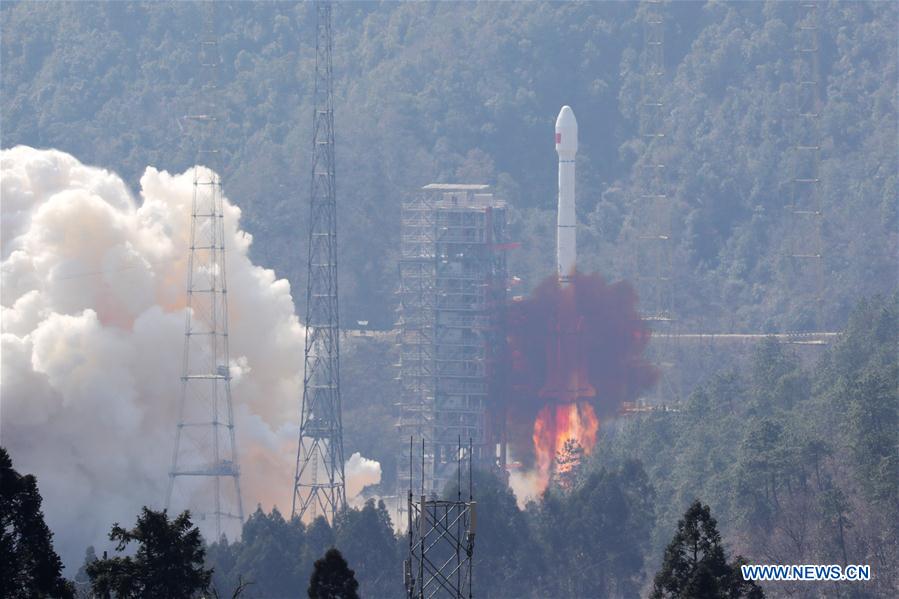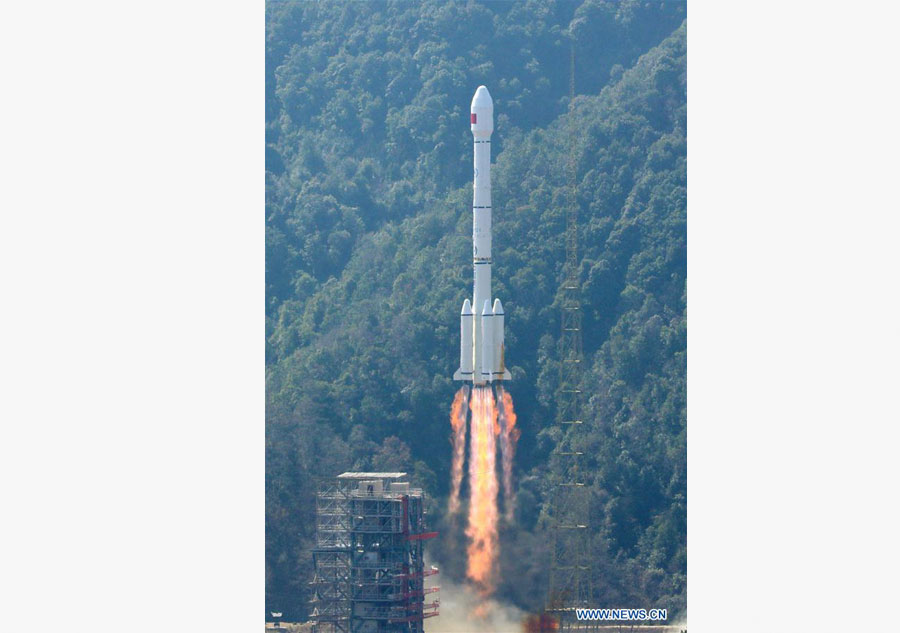China launches 2 satellites into space


China launched a pair of navigation satellites on Monday afternoon, moving closer to building a global-covering network.
The 28th and 29th satellites in the domestically developed Beidou Navigation Satellite System, one of the nation's largest space programs, were lifted atop a Long March 3B carrier rocket at the Xichang Satellite Launch Center in Sichuan province.
They are the fifth and sixth in the third generation of Beidou satellites. They will conduct some in-orbit tests and then be connected to the previous four third-generation Beidou satellites, according to a statement from the China Satellite Navigation Office.
In November, the first two third-generation Beidou satellites were launched at the Xichang center. In January, another two lifted off from the same center.

Beidou is the fourth space-based navigation system in the world, following the GPS in the United States, the GLONASS in Russia and the Galileo of the European Union.
Since 2000, when the first Beidou satellite was sent into space, 33 satellites have been launched for the network. The Beidou system began providing positioning, navigation, timing and message services to civilian users in China and parts of the Asia-Pacific region in December 2012.
According to plans from the China Satellite Navigation Office, the network will be made up of 35 satellites before the end of 2020 -- several now in orbit will be decommissioned by then -- to give Beidou global coverage.
Once the network is completed, it will provide free-of-charge navigation and positioning services with 10-meter accuracy to civilian users around the world. Higher accuracy up to centimeter level will be available to paying clients.





































